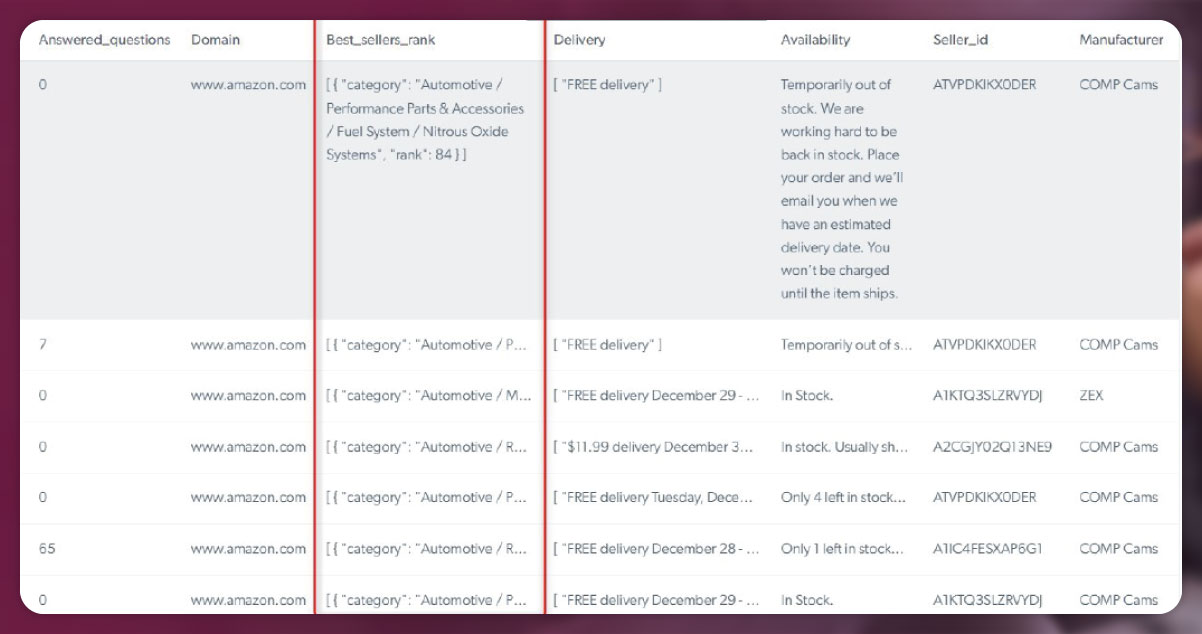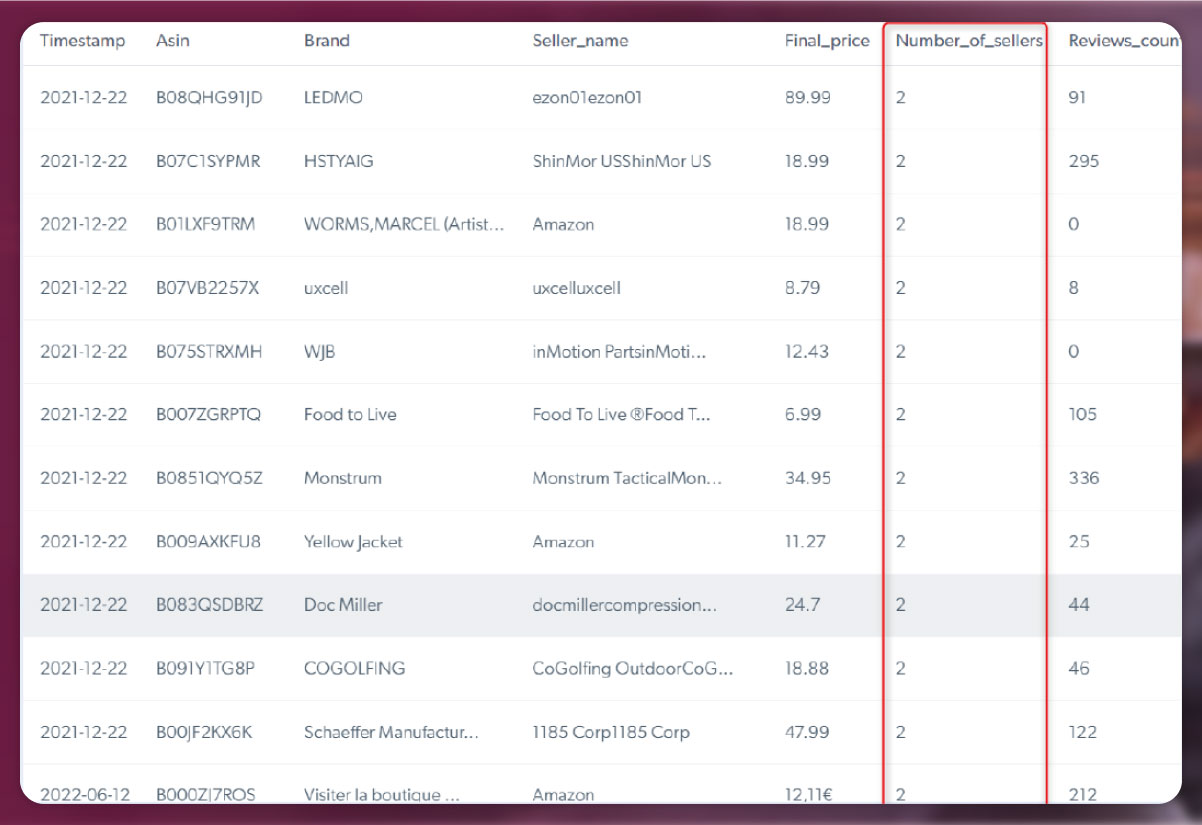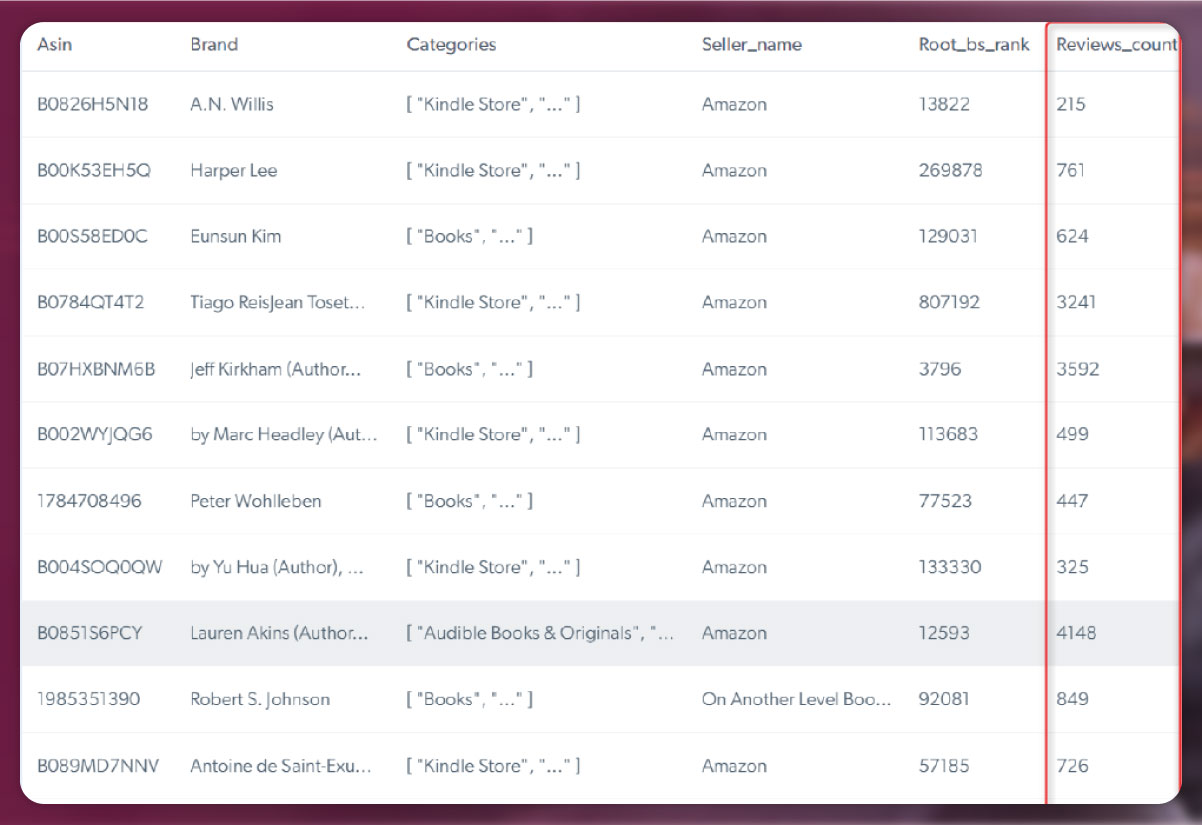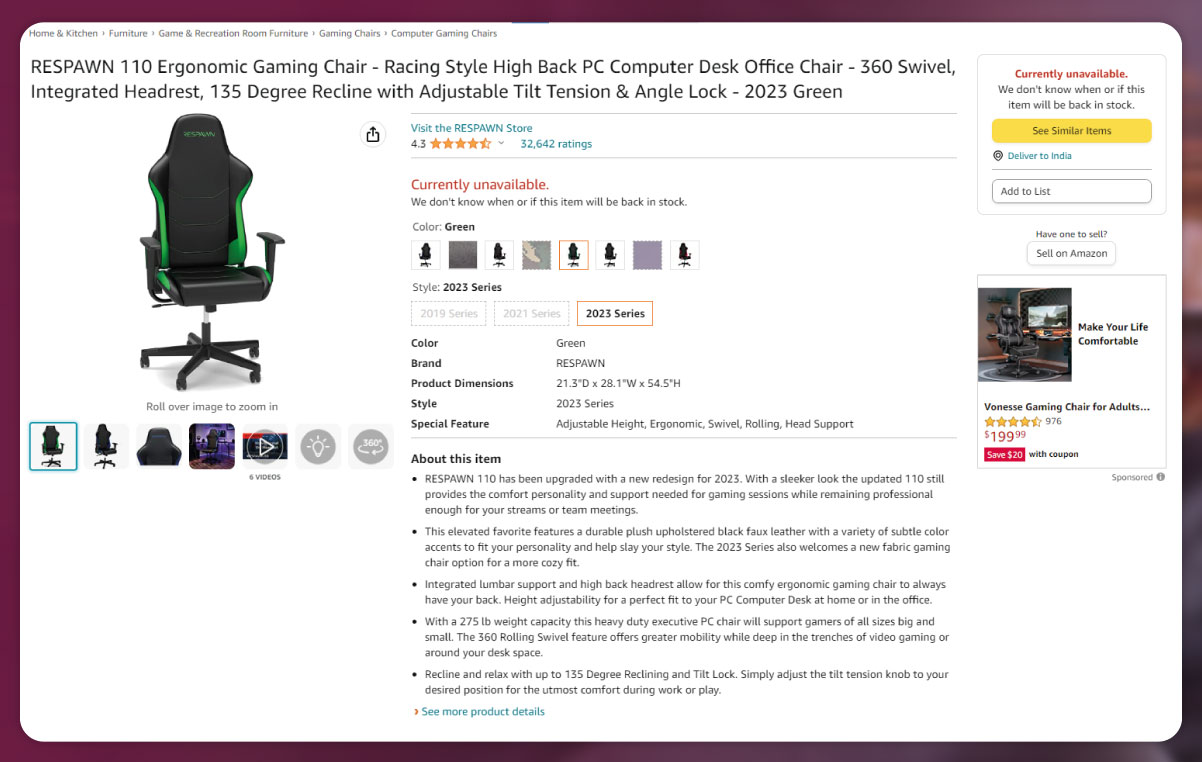How Web Data Can Help E-Commerce Companies Predict Market Trends And Consumer Behavior?

In today’s competitive market, businesses must continuously improve their products and capture a larger market share. One effective way to achieve this is by cross-referencing datasets to uncover insights that can drive product enhancements and inform marketing campaigns.
One valuable dataset to consider is the number of product reviews. A higher quantity of reviews typically indicates a more extensive customer base and more opportunities to gather feedback. By analyzing the number of reviews a product receives, we can gain insights into consumer feedback and engagement.
Cross-referencing this dataset with other relevant data can provide valuable insights. For example, by analyzing the content of consumer reviews, we can identify common pain points, areas for improvement, and specific features or attributes that customers appreciate. This information can be used to enhance product quality, address customer concerns, and differentiate the product from competitors.
Furthermore, correlating the number of product reviews with customer satisfaction metrics, such as ratings or sentiment analysis, allows us to gauge the overall satisfaction level of customers. Products with high positive reviews and favorable ratings are likely to attract more customers and gain a larger market share.
Once these insights are obtained, they can be leveraged in marketing campaigns to highlight the product’s quality and positive customer feedback. By showcasing real customer experiences and emphasizing the product’s unique selling points, businesses can effectively differentiate themselves from competitors and attract potential customers.
It is important to note that cross-referencing datasets requires careful data collection, integration, and analysis. Businesses should ensure appropriate data governance practices and comply with data privacy regulations to protect customer information.
By utilizing practical cross-referencing of datasets, businesses can continuously improve their products, address customer needs, and strategically position themselves in the market. This data-driven approach enables businesses to make informed decisions, enhance customer satisfaction, and ultimately achieve a larger market share.
Three Datasets for Predicting Consumer Behavior
Dataset #1: Best-Seller Products by Amazon
This dataset contains information about users, the product categories and subcategories they purchased, and additional parameters like color, ASIN (Amazon Standard Identification Number), and item brand. By analyzing this data, companies can identify popular products in specific categories/subcategories and decide to incorporate similar items into their catalog.
Here is an example of what the purchase history dataset may look like:

Note: This is a simplified example, and in practice, the dataset may contain more detailed information and additional columns such as purchase date, price, ratings, and reviews.
Dataset #2: Best-Seller Products by Amazon Having the Lowest Number of Sellers
In this dataset, each row represents a specific product in a particular category and subcategory. The dataset includes the following:
The ASIN (Amazon Standard Identification Number) of the product.
The number of vendors selling that product.
Its sell-through rate (STR).
The sell-through rate represents the percentage of inventory sold within a given time.
By analyzing this dataset, companies can identify products in their field of interest with high sell-through rates but are sold by only a few vendors. This indicates a high-demand product with limited competition, presenting a valuable opportunity for the merchandising team to capitalize on.
Here is an example of what the sell-through rate dataset may look like:

Note: This is a simplified example, and in practice, the dataset may contain more detailed information and additional columns such as product name, average selling price, and historical sell-through data.
Dataset #3: Most Reviewed Books on Amazon
This dataset provides valuable insights into the number of reviews for books, allowing vendors to make informed decisions. By analyzing the number of reviews, vendors can identify popular books that attract significant engagement and discussion from readers. While these books may not necessarily be best-sellers in a vendor’s shop, they can serve as powerful tools to generate interest and attract a relevant target audience. Utilizing this dataset, vendors can strategically incorporate books with high review counts into their advertising campaigns and leverage online discussion forums to introduce their store to potential customers. Here is a sample of the dataset:

Cross-referencing Data to Dominate Respective Fields
Companies that can cross-reference the datasets mentioned above with additional information gain a significant advantage in digital commerce. By combining the insights from these datasets with other relevant data, companies can unlock unique and actionable insights that give them a competitive edge in their respective fields. This cross-referencing allows companies to uncover hidden patterns, identify market trends, and make informed business decisions that can lead to dominance in their industry. By leveraging data and advanced analytics, companies can stay ahead of the competition, optimize their strategies, and position themselves as influential players in the market.
Cross-Referenced Reviews with Extensive Customer Feedback
Cross-referencing the quantity of product reviews with substantial customer feedback expressed across hundreds of reviews is a powerful strategy for companies. By analyzing the content and sentiment of customer feedback, companies can gain deep insights into the strengths and weaknesses of their products. This analysis allows them to identify areas for improvement, enhance product quality, and address customer concerns effectively. Furthermore, by leveraging this valuable customer feedback in their marketing campaigns, companies can showcase the positive experiences of their customers, build trust, and attract a larger customer base. The ability to cross-reference review quantity with detailed customer feedback enables companies to make data-driven decisions, enhance product offerings, and ultimately gain a competitive advantage in the market.

Taking the ‘ergonomic gaming chair’ as an example, the dataset reveals that this product has amassed an impressive 30,436 reviews, indicating its popularity among buyers. However, when we cross-reference this information with qualitative feedback from customers, a common trend emerges. Many shoppers express dissatisfaction with the chair’s quality, reporting that it tends to deteriorate and fall apart within just 1-2 months of use. This valuable insight obtained from customer reviews highlights a significant issue that needs to be addressed by the company. By acknowledging and addressing the quality concerns raised by customers, the company can make informed decisions to improve the chair’s durability, enhance the overall customer experience, and mitigate negative feedback. This cross-referencing of review quantity with qualitative feedback allows companies to identify areas for product enhancement, ensure customer satisfaction, and maintain a competitive edge in the market.

By cross-referencing the number of reviews with qualitative feedback about the ‘ergonomic gaming chair,’ a company planning to enter the gaming chair industry can gain valuable insights to enhance its product design and quality. Armed with the knowledge that customers have expressed concerns about the chair’s durability and premature wear, the company can take proactive measures to address these issues and improve the overall quality of their gaming chair.
With the improvements made, the company can highlight its chair’s enhanced quality in product listings and incorporate it into its advertising campaigns. They can emphasize that their chair is built to last and provide superior performance compared to competitors. To instill confidence in potential customers, the company may even offer a ‘100% quality guarantee or your money-back warranty, showcasing their commitment to delivering a high-quality product.
By leveraging this cross-referenced data to improve its product and marketing messaging, the company can differentiate itself in the market, attract customers who prioritize quality, and gain a competitive advantage in the gaming chair industry.
Conclusion
When utilized creatively and cross-referenced, Datasets offer digital commerce businesses a powerful tool to gain an informational advantage. By leveraging these datasets, companies can develop effective go-to-market strategies, localize their business operations, enter new markets, and seize increased market share in their existing markets.
The insights from cross-referencing datasets enable companies to make informed decisions and take targeted actions. Whether identifying market trends, understanding customer preferences, or uncovering hidden patterns, these datasets provide valuable information that can drive strategic planning and decision-making.
By effectively utilizing cross-referenced datasets, businesses can stay ahead of the competition, identify untapped opportunities, and tailor their offerings to meet customer demands. This allows them to position themselves as market leaders, capture a larger market share, and achieve sustainable growth in the digital commerce landscape.
In summary, leveraging the power of datasets and cross-referencing them opens up new possibilities for businesses to gain a competitive edge, expand their reach, and achieve their business objectives in the dynamic world of digital commerce.
To know more, contact Actowiz Solutions now! You can also call us for all your mobile app scraping and web scraping service requirements.
sources : https://www.actowizsolutions.com/web-data-helping-ecommerce-companies-for-market-trends-and-consumer-behavior.php

